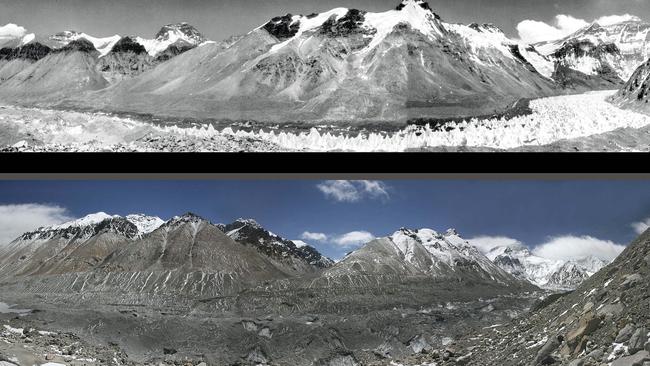Glacier doonas slow melting of ice
Wrapping glaciers in quilts might not seem like the most sophisticated way to fight climate change but Chinese researchers have found it can slow ice melting.

Wrapping glaciers in quilts might not seem like the most sophisticated way to fight climate change but Chinese researchers have found it can slow ice melting.
Wang Feiteng, at the Chinese Academy of Sciences, set up a 500sq m experiment at Dagu glacier in the southwest of the country last northern summer. After two months, the team found the ice in the covered area had melted a metre less than the area that was uncovered.
This may help the country’s small glaciers, which could soon disappear without human intervention, Mr Wang said. “We will experiment further and spread the artificial heat-blocking measure,” he said, adding his team would gather more detailed data.
The quilts help to reflect solar radiation and thus keep the ice cooler, Mr Wang told the Technology Daily, a state-run newspaper.
The “quilt” used by his team was made from a synthetic fibre that can block heat and reflect light.
Mr Wang said the method was inexpensive and thus suitable for wider use on smaller glaciers.
For larger glaciers, artificial snowfall might work better to increase reflection.
In a similar way, each summer Swiss hikers haul white fleece blankets over 2ha of the Rhone glacier to protect it from heat.
Glaciers in the Tibetan plateau, which is known as the third pole on account of the amount of ice locked in the high-altitude wilderness, are disappearing fast amid climate change.
In the Qilian mountains, on the northern edge of the plateau, glacier retreat was 50 per cent faster between 1990 and 2010 than it was from 1956 to 1990.
A 2018 report by Greenpeace said some of China’s glaciers had retreated 1.2km in 30 years, causing water shortages.
The Times


